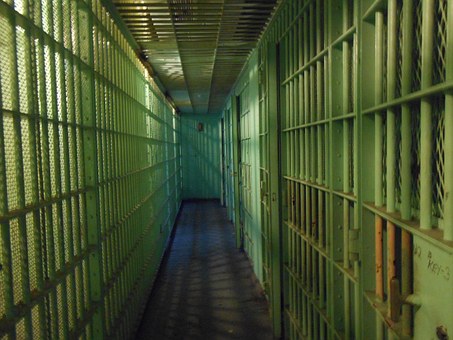By Kelan Lyons

County sheriffs and jailers could challenge violations uncovered during jail inspections conducted by the NC Department of Health and Human Services, according to a provision in the proposed state budget.
Bill opponents say the measure undermines the state’s ability to regulate county jails and to enforce safety standards by allowing local authorities to immediately appeal the results of investigations. That could delay remedies for the violations while the appeal wends through the court system.
Eddie Caldwell, executive vice president and general counsel of the North Carolina Sheriffs’ Association, however, said those concerns are overblown.
“My guess is that will be used in less than 1% of the inspection reports, maybe less than that. Very rarely, but if a sheriff vehemently disagrees with the inspector about whether or not there’s a violation, they should have some right of appeal,” Caldwell said. “The sky is not falling.”
Lawmakers tried to pass a similar bill last year. That measure would have allowed local governments to request a contested case hearing before a judge to discuss the findings. It can take months for contested case hearings to be scheduled and held.
Last year’s bill passed out of the House but stalled in a Senate committee.
This year’s budget, which Republicans drafted in secret, brought it back.
Dangerous jail conditions could linger
Inspectors visit county, municipal and regional jails twice a year. Inspectors investigate conditions of confinement, treatment of incarcerated people, and the maintenance of entry-level job standards for jail employees. Inspectors write a report detailing whether the jail meets minimum standards set by state law, and then submit it to the officials responsible for the jail.
Jails can be cited for a wide range of violations, such as a door not being up to code to the improper monitoring of incarcerated people who have been placed on suicide watch.
Disability Rights NC analyzed roughly 200 jail inspections conducted a year before the pandemic. About 60% of those probes found jails did not meet the state’s minimum safety standards, said Luke Woollard, an attorney with Disability Rights NC.

Many of the violations are for relatively minor issues, like dirty HVAC vents, but they can also be more serious, like supervision rounds being improperly conducted.
“In a jail setting, even something like, ‘A couple lightbulbs are out in this dorm,’ that means there’s not appropriate lighting, which makes it not as safe as it needs to be,” Woollard said.
Under the current system, if a jail fails an inspection, state officials forward their report to the respective county commissioners. Sheriffs create a plan of correction and submit it to Division of Health Services Regulation, and the two entities work to address the issues flagged in the investigation.
The DHHS secretary can impose harsher penalties, even closing a jail, if it is found to seriously threaten the safety of the incarcerated. In these cases, state law presently allows local governments to request a contested case hearing only when the DHHS secretary plans to shut down a local jail or force officials to make changes
But the proposed budget language would allow sheriffs or local governments to delay changes called for in investigations; they can simply file for a contested case hearing within 30 days and challenge the investigation findings in court. Contested case hearings, which occur before an administrative law judge, can take months to be scheduled and then held. And if the ruling doesn’t go the sheriffs’ way, they can appeal again, further delaying the remedying process.
“Sheriffs would have the right to appeal any failed inspection for any reason,” Woollard said. “What this does is lets sheriffs file for a contested case hearing the minute they get a failed inspection, for any reason, and drag DHHS in front of an administrative law judge,” Woollard said. “The dangerous conditions that were found in the inspection will continue while they do that contested case hearing.”
Advocates voice concern, but sheriffs downplay the issue
Disability Rights NC warned that the provision allowing an immediate appeal threatens the integrity of the jail safety inspection process, “likely leading to deadly conditions in jails already facing increased suicides and deaths.”

A change to the system could also tie DHHS up in court, having to respond to the contested case hearings, Woollard said, potentially burdening agency personnel.
The main problem with the bill, Woollard said, is that sheriffs can “immediately and unilaterally” appeal any alleged inspection violation, no matter how minor, for any reason, giving them “an avenue to undermine and abrogate DHHS’s regulatory authority over them.”
But Caldwell rebutted the idea that sheriffs would request contested case hearings en masse. “It’s not going to be every little write-up is going to get appealed,” he said.
“In almost all the cases, the jail inspector is writing the sheriff up for something that the sheriff or their staff know happened, so they’re not going to contest whether it happened or not,” Caldwell said. “The jail staff value the inspectors coming in and checking on things. But when the inspectors make a decision that’s wrong, there needs to be some mechanism to correct that.”
Both the House and the Senate gave preliminary approval to the budget bill on Thursday and the measure is expected to receive final votes as early as Friday and then head to Gov. Cooper for his review.



